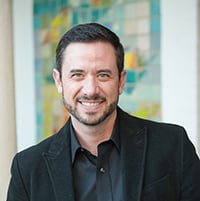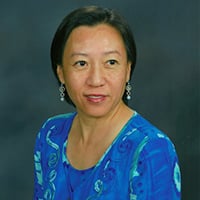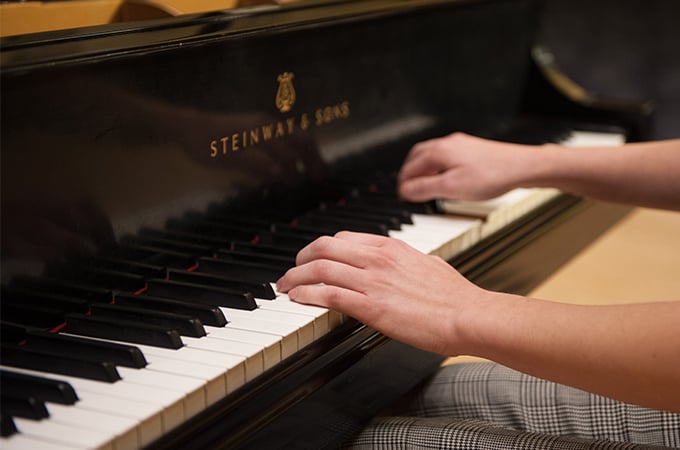When students enroll at the University of Redlands School of Music, they embark on a journey of holistic arts education. A goal of the school is to educate the whole musician, and, as a result, students learn to perform, interpret, and teach music through intensive training in a liberal arts setting.
One of the ways that students can gain real-world experience is by teaching in the Community School of Music and the Arts (CSMA), an organization founded by the U of R in 1981 to provide quality year-round musical instruction to children and adults, regardless of skill level. Offering instruction in wind and string instruments, percussion, piano, voice, guitar, harp, Suzuki piano and violin, early childhood music, youth orchestra, and youth choir, the CSMA makes music education accessible, with the help of competitive prices.

“The CSMA is unique; there isn’t another institution like it in Southern California,” says Director of the School of Music Joseph Modica, who oversees the CSMA and its administrative needs. “We highlight it when we recruit students for the School of Music because they can gain teaching experience.”
Modica posits that the idea for the Community School of Music and the Arts grew out of the arts-based community that has existed in Redlands for decades. In addition to overseeing the program, Modica has had direct experience with the CSMA as a parent of children who participated in the youth choir. “Back in the ‘80s we really struggled with arts education in public schools, and a lot of programming was affected,” he says. “It’s awesome for children to have this experience and to work with trained musicians.”
Currently, the CSMA serves 600 students and employs 60 teachers, including professional artist faculty, instructors from across the Inland Empire, and qualified School of Music graduate and undergraduate students. In March, lessons transitioned to an online format in response to the COVID-19 pandemic. Piano teacher Rae Kate Shen, who coordinates the CSMA Suzuki program, has been teaching at the school for 27 years.
Shen, whose mother and grandmother were piano teachers, was attracted to the Suzuki method—an internationally recognized music curriculum developed by Shinichi Suzuki—after witnessing her sibling’s success with the curriculum.
“The goal of the Suzuki method is not just to teach the instrument, but to teach kids how to become kind human beings by using the instrument as a tool,” she says. “The method believes that every child is capable and can ultimately succeed—not just in music, but in whatever they choose.”

One of Shen’s former students, Lou Chen, has gone on to do just that. After graduating from Princeton University with concentrations in music and conducting, Chen assumed the role of program manager for arts outreach at Princeton, a position that builds on the community work he began in Trenton, New Jersey, as an undergraduate student.
Chen founded the Trenton Youth Orchestra in 2017, a string orchestra for local high school students. The group has since expanded into a larger program—Trenton Arts at Princeton—and serves to bridge the gap between adolescent and collegiate arts education by broadening local arts education offerings.
“So much of what I do now can be traced back to my formative years under Rae Shen’s guidance, for which I will always be grateful,” says Chen.
While Chen went on to pursue a career in music, Shen says that the majority of her former students have entered other fields but often still attribute their professional success to their experiences at the Community School of Music and the Arts.
“Accessible arts education is valuable and not every community offers what we have,” she says. “Music calms peoples’ souls and teaches valuable life skills, such as organization and patience. It’s a universal language, and, ultimately, it can change the world.”
Learn more about the U of R School of Music and the Community School of Music and the Arts.






